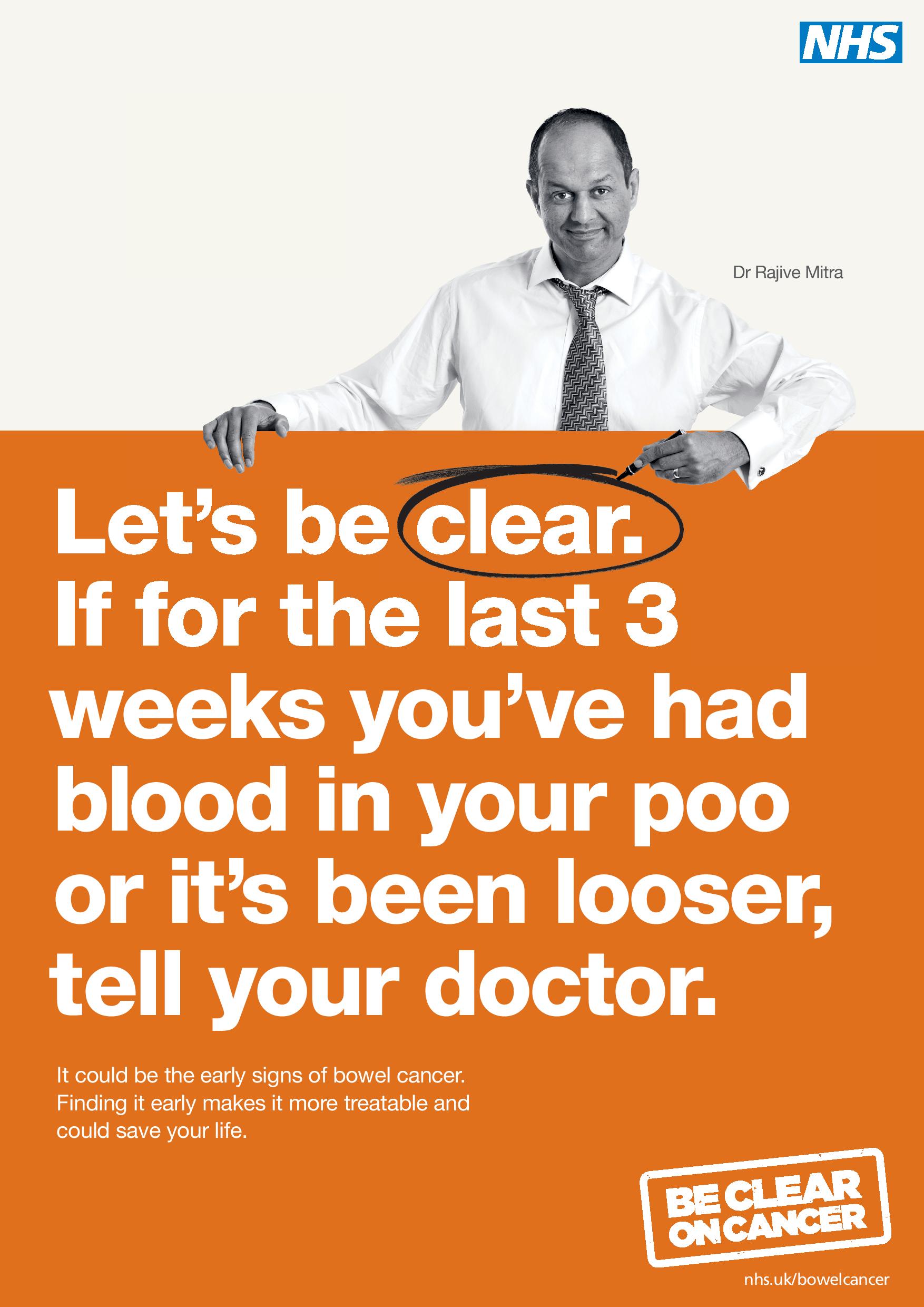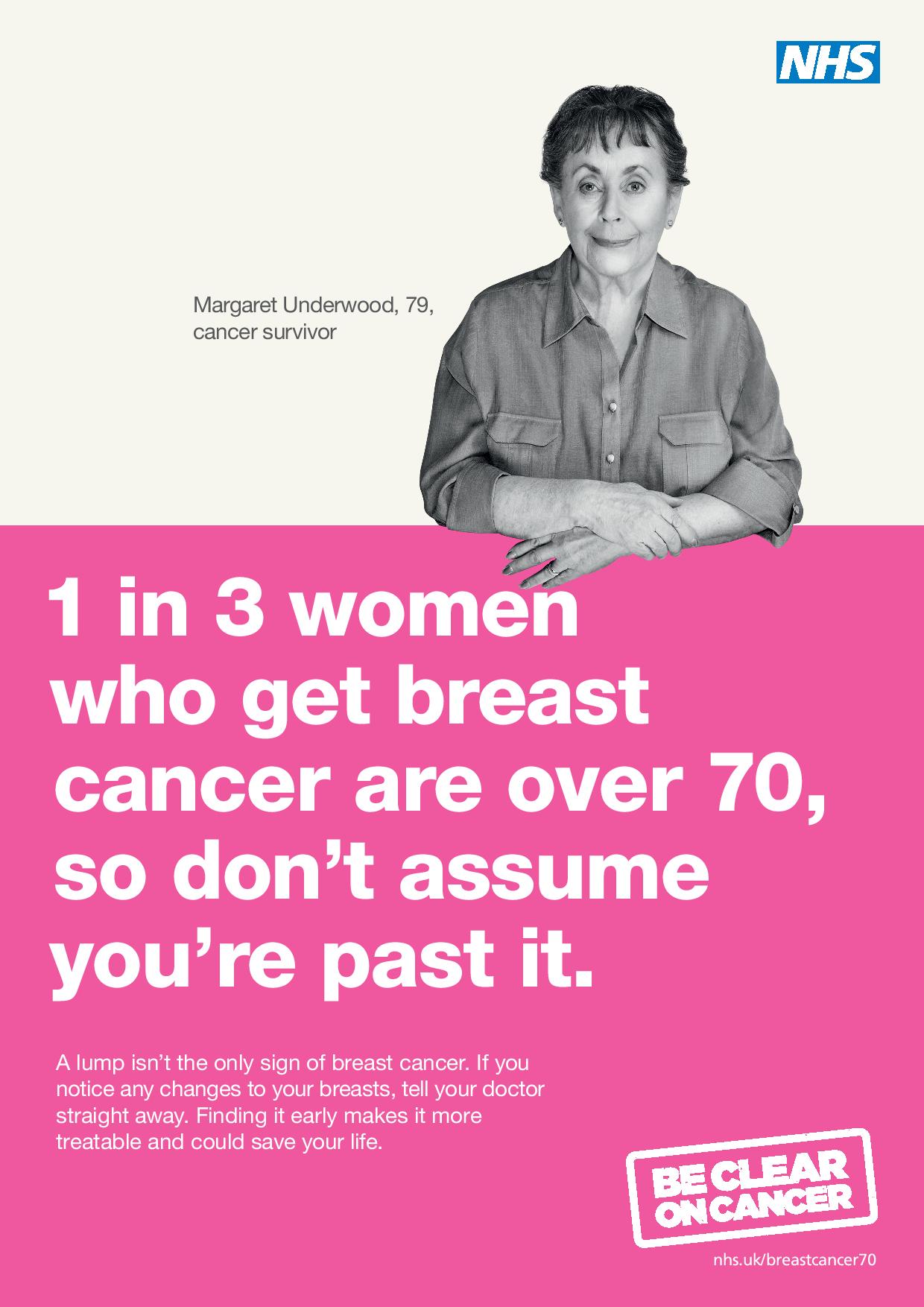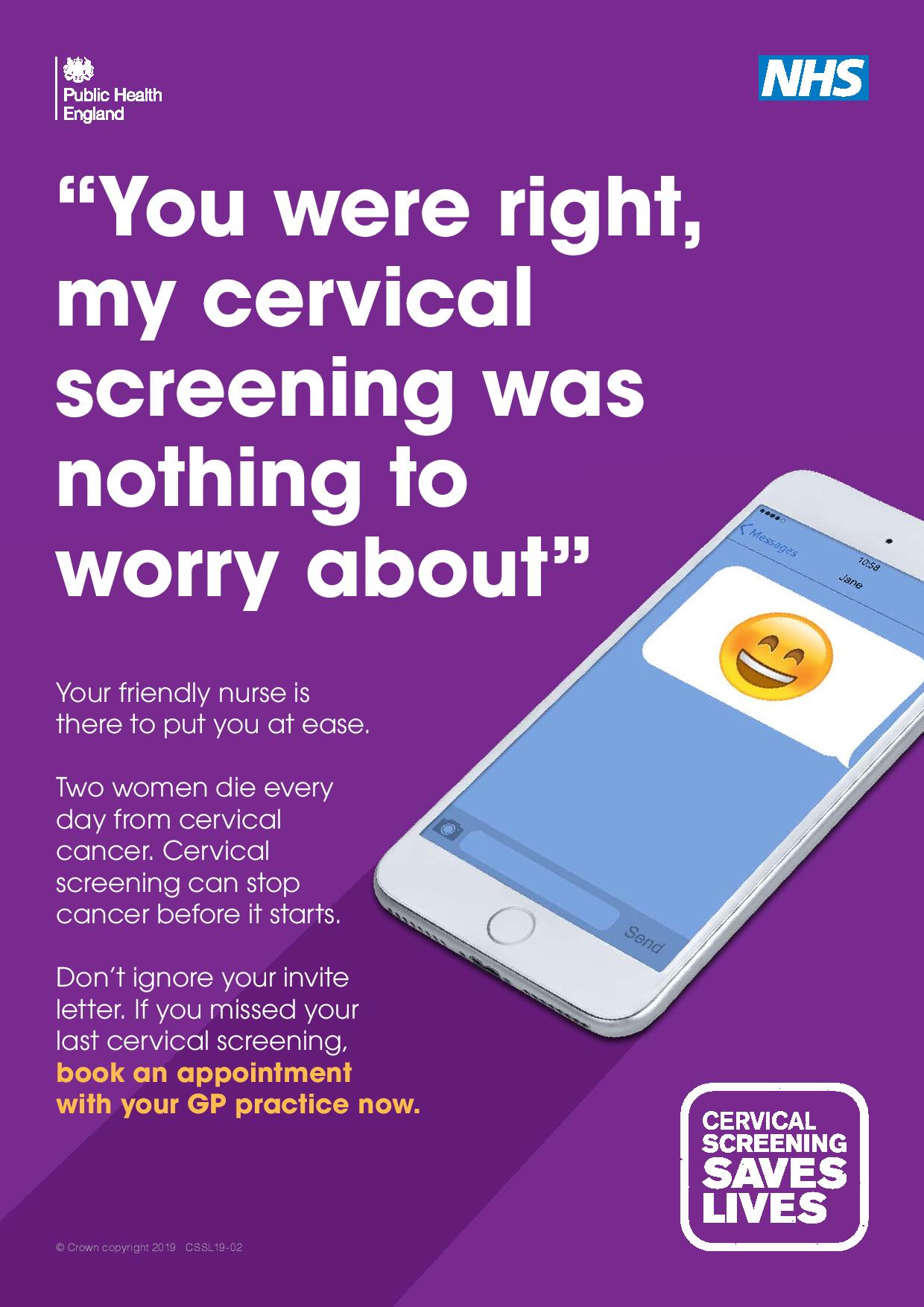Cancer Screening
Currently there are 3 types of Cancer Screening, these are; Bowel Screening, Breast Screening and Cervical Screening.
What is Screening?
Screening is a way of identifying if someone has an increased risk of developing a health problem, so that early treatment can be offered or information can be given to the patient to help them make an informed decision.
Screening Results
Getting a normal result means you are at low risk of having the condition you were screened for. This does not mean you will never develop the condition in the future, just that you are low risk at the moment.
If you have a higher-risk result (positive result), this means you may have the condition you were tested for. At this stage you will be offered further testing to confirm diagnosis. You can then be offered treatment, advice and support.
Finding out a condition early means you can be treated for your condition sooner which will be more effective. However, screening tests are not perfect and they can lead to difficult decisions about having further tests or treatment.
If you are still unsure on whether to go to your screening please continue to look at our page for further information on each of the 3 Screenings. Deciding whether or not to have a screening test is a personal choice and one which only you can make. Before having any screening test, it is worth finding out about the test itself and what would happen next if you found out you have a higher risk of a particular condition.
Bowel Screening
If you are between the ages of 60 to 74 you will be invited every 2 years for Bowel Cancer Screening. The Test Kit is used to detect tiny amounts of blood in faeces and will determine if you need any further tests. If you are over 74 and wish to continue being tested every 2 years you are able to request a Test Kit by ringing the helpline on 08007076060.
If you want to read more information on:
Breast Screening
Women are invited for Breast Screening between then ages on 50 and 70. During the Screening a Mammography is performed, which will take 6 minutes. They also offer sensitising visits for women with disabilities so they are able to familiarise themselves with the staff, equipment and the unit itself, upon receiving the letter for your appointment contact them to arrange this specific visit.
If you want to read more information on:
Cervical Screening
Cervical Screening checks for HPV and any Cervical Cell Changes. If you are between the ages of 25 to 54 you are invited every 3 years, and 50 to 64 invited every 5 years. If you have recently given birth and are due your Cervical Screening you need to wait 3 months after birth until you can be Screened. If you have a Cervix you can have a screening, therefore if you are transgender and have a cervix this is something you will need to consider.
If you want to read more information on:

Text from above image:
Let's be clear. If for the last 3 weeks you've had blood in your poo or it's been looser, tell your doctor.
It could be early signs of bowel cancer. Finding it early makes it more treatable and could save your life.
Be clear on cancer

Text from above image:
1 in 3 women who get breast cancer are over 70, so don't assume you're past it.
A lump isn't the only sign of breast cancer. If you notice any changes to your breasts, tell your doctor straight away.
Finding it early makes it more treatable and could save your life.
Be clear on cancer

Text from above image:
"You were right, my cervical screening was nothing to worry about"
Your friendly nurse is there to put you at ease.
Two women die every day from cervical cancer. Cervical screening can stop cancer before it starts.
Don't ignore your invite letter. If you missed your last cervical screening, book an appointment with your GP practice now.